2013 Toyota Camry Tires & Services
Get Started
Complete Auto Care for Your 2013 Toyota Camry
-
TIRES FOR YOUR 2013 Toyota Camry View Tire Info GET TIRE PRICING
-
REPAIR FOR YOUR 2013 Toyota Camry View Repair Info SCHEDULE REPAIR
-
MAINTENANCE FOR YOUR 2013 Toyota Camry View Maintenance Info SCHEDULE MAINTENANCE
-
OFFERS FOR YOUR 2013 Toyota Camry Limited Time Tire Offers VIEW ALL COUPONS
2013 Toyota Camry Tires
Recommended Tires | Tire Information
2013 Toyota Camry Tires Sizes, Speed Ratings, and Inflation
Not sure about your 2013 Toyota Camry tire size? Use the following chart to find information on tire size, speed rating, and inflation.
| Trim Level | Speed Rating | Inflation in PSI F/R | Tire Size |
|---|---|---|---|
| 2013 Toyota Camry XLE* | V | 35 PSI/35 PSI | P215/55R17 |
| 2013 Toyota Camry XLE* | V | 35 PSI/35 PSI | P215/55R17 |
| 2013 Toyota Camry XLE* | V | 35 PSI/35 PSI | P215/55R17 |
| 2013 Toyota Camry XLE* | V | 35 PSI/35 PSI | P215/55R17 |
| 2013 Toyota Camry L* | S | 35 PSI/35 PSI | P205/65R16 |
| 2013 Toyota Camry L* | S | 35 PSI/35 PSI | P205/65R16 |
| 2013 Toyota Camry L* | S | 35 PSI/35 PSI | P205/65R16 |
| 2013 Toyota Camry L* | S | 35 PSI/35 PSI | P205/65R16 |
| 2013 Toyota Camry Hybrid XLE* | V | 35 PSI/35 PSI | P215/55R17 |
| 2013 Toyota Camry Hybrid XLE* | V | 35 PSI/35 PSI | P215/55R17 |
| 2013 Toyota Camry Hybrid XLE* | V | 35 PSI/35 PSI | P215/55R17 |
| 2013 Toyota Camry Hybrid XLE* | V | 35 PSI/35 PSI | P215/55R17 |
| 2013 Toyota Camry LE* | S | 35 PSI/35 PSI | P205/65R16 |
| 2013 Toyota Camry LE* | S | 35 PSI/35 PSI | P205/65R16 |
| 2013 Toyota Camry LE* | S | 35 PSI/35 PSI | P205/65R16 |
| 2013 Toyota Camry LE* | S | 35 PSI/35 PSI | P205/65R16 |
| 2013 Toyota Camry Hybrid LE* | S | 35 PSI/35 PSI | P205/65R16 |
| 2013 Toyota Camry Hybrid LE* | S | 35 PSI/35 PSI | P205/65R16 |
| 2013 Toyota Camry Hybrid LE* | S | 35 PSI/35 PSI | P205/65R16 |
| 2013 Toyota Camry Hybrid LE* | S | 35 PSI/35 PSI | P205/65R16 |
| 2013 Toyota Camry SE* | V | 33 PSI/33 PSI | P225/45R18 |
| 2013 Toyota Camry SE* | V | 33 PSI/33 PSI | P225/45R18 |
| 2013 Toyota Camry SE* | V | 33 PSI/33 PSI | P225/45R18 |
| 2013 Toyota Camry SE* | V | 33 PSI/33 PSI | P225/45R18 |
| 2013 Toyota Camry SE* | V | 35 PSI/35 PSI | P215/55R17 |
| 2013 Toyota Camry SE* | V | 35 PSI/35 PSI | P215/55R17 |
| 2013 Toyota Camry SE* | V | 35 PSI/35 PSI | P215/55R17 |
| 2013 Toyota Camry SE* | V | 35 PSI/35 PSI | P215/55R17 |
|
2013 Toyota Camry XLE* Speed Rating: V Inflation F/R: 35 PSI/35 PSI |
|
2013 Toyota Camry XLE* Speed Rating: V Inflation F/R: 35 PSI/35 PSI |
|
2013 Toyota Camry XLE* Speed Rating: V Inflation F/R: 35 PSI/35 PSI |
|
2013 Toyota Camry XLE* Speed Rating: V Inflation F/R: 35 PSI/35 PSI |
|
2013 Toyota Camry L* Speed Rating: S Inflation F/R: 35 PSI/35 PSI |
|
2013 Toyota Camry L* Speed Rating: S Inflation F/R: 35 PSI/35 PSI |
|
2013 Toyota Camry L* Speed Rating: S Inflation F/R: 35 PSI/35 PSI |
|
2013 Toyota Camry L* Speed Rating: S Inflation F/R: 35 PSI/35 PSI |
|
2013 Toyota Camry Hybrid XLE* Speed Rating: V Inflation F/R: 35 PSI/35 PSI |
|
2013 Toyota Camry Hybrid XLE* Speed Rating: V Inflation F/R: 35 PSI/35 PSI |
|
2013 Toyota Camry Hybrid XLE* Speed Rating: V Inflation F/R: 35 PSI/35 PSI |
|
2013 Toyota Camry Hybrid XLE* Speed Rating: V Inflation F/R: 35 PSI/35 PSI |
|
2013 Toyota Camry LE* Speed Rating: S Inflation F/R: 35 PSI/35 PSI |
|
2013 Toyota Camry LE* Speed Rating: S Inflation F/R: 35 PSI/35 PSI |
|
2013 Toyota Camry LE* Speed Rating: S Inflation F/R: 35 PSI/35 PSI |
|
2013 Toyota Camry LE* Speed Rating: S Inflation F/R: 35 PSI/35 PSI |
|
2013 Toyota Camry Hybrid LE* Speed Rating: S Inflation F/R: 35 PSI/35 PSI |
|
2013 Toyota Camry Hybrid LE* Speed Rating: S Inflation F/R: 35 PSI/35 PSI |
|
2013 Toyota Camry Hybrid LE* Speed Rating: S Inflation F/R: 35 PSI/35 PSI |
|
2013 Toyota Camry Hybrid LE* Speed Rating: S Inflation F/R: 35 PSI/35 PSI |
|
2013 Toyota Camry SE* Speed Rating: V Inflation F/R: 33 PSI/33 PSI |
|
2013 Toyota Camry SE* Speed Rating: V Inflation F/R: 33 PSI/33 PSI |
|
2013 Toyota Camry SE* Speed Rating: V Inflation F/R: 33 PSI/33 PSI |
|
2013 Toyota Camry SE* Speed Rating: V Inflation F/R: 33 PSI/33 PSI |
|
2013 Toyota Camry SE* Speed Rating: V Inflation F/R: 35 PSI/35 PSI |
|
2013 Toyota Camry SE* Speed Rating: V Inflation F/R: 35 PSI/35 PSI |
|
2013 Toyota Camry SE* Speed Rating: V Inflation F/R: 35 PSI/35 PSI |
|
2013 Toyota Camry SE* Speed Rating: V Inflation F/R: 35 PSI/35 PSI |
* Note: these models have different tire sizes depending on vehicle options.
Recommended Tires for Your 2013 Toyota Camry
What tires are best for a 2013 Toyota Camry? Check out the following tire brands and types.
 Potenza Sport AS
Potenza Sport AS
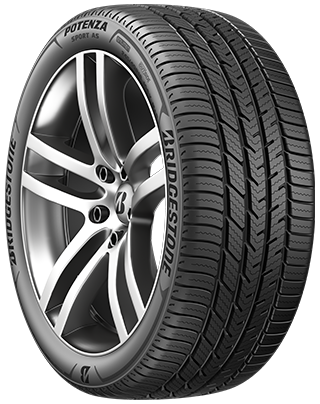
- Platinum Pact Limited Warranty
- All-Season
- Performance
 WEATHERPEAK
WEATHERPEAK
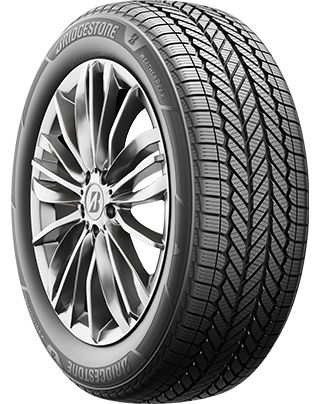
- Platinum Pact Limited Warranty
- All-Season
- Passenger Tires
 Turanza LS100
Turanza LS100
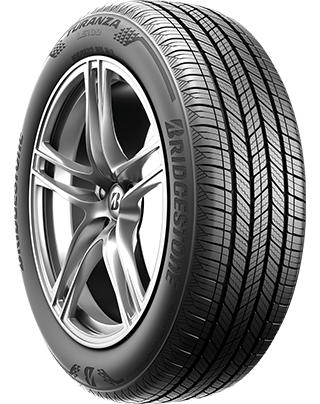
- Platinum Pact Limited Warranty
- All-Season
- Performance
 Turanza QUIETTRACK
Turanza QUIETTRACK
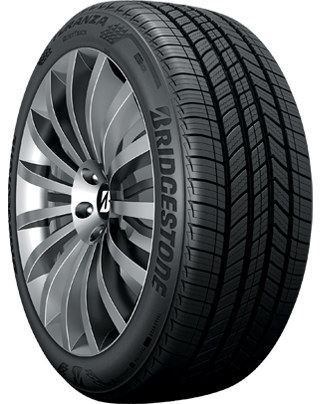
- No warranty
- All-Season
- Performance
 Turanza T005A
Turanza T005A
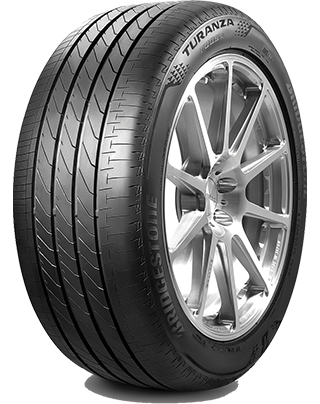
- No warranty
- Summer
- Performance
 Blizzak LM-32
Blizzak LM-32
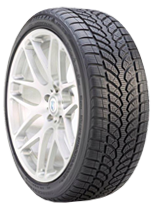
- Platinum Pact Limited Warranty
- Winter
- Winter
 Potenza RE71RS
Potenza RE71RS
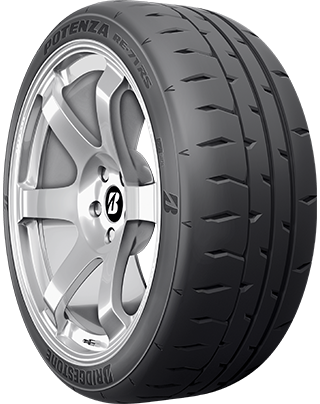
- No warranty
- Summer
- Performance
 DriveGuard Plus
DriveGuard Plus
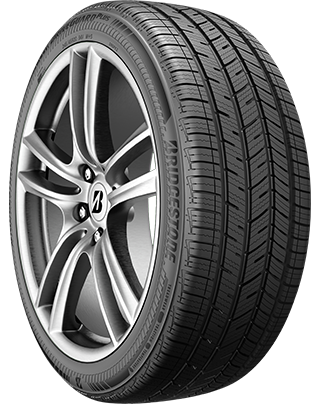
- Platinum Pact Limited Warranty
- All-Season
- Performance
 Blizzak WS90
Blizzak WS90
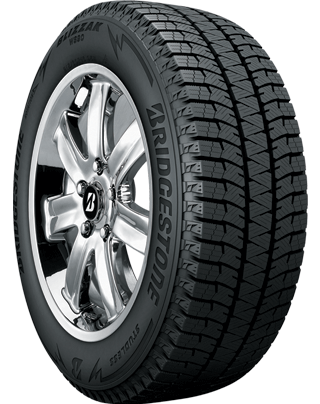
- No warranty
- Winter
- Winter
 Potenza Sport
Potenza Sport
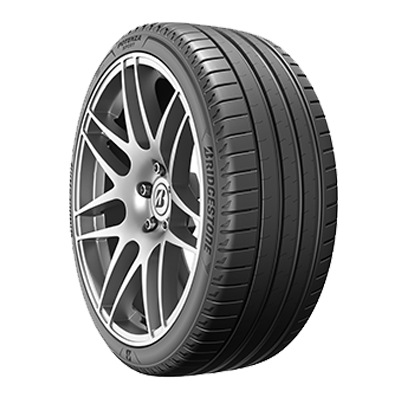
- Platinum Pact Limited Warranty
- Summer
- Performance
 Turanza T005
Turanza T005
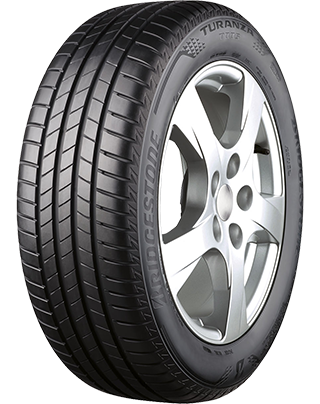
- No warranty
- Summer
- Performance
 Ecopia EP422 Plus
Ecopia EP422 Plus
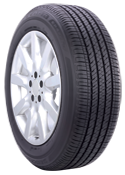
- Platinum Pact Limited Warranty
- All-Season
- Performance
 Affinity Touring S4 FF
Affinity Touring S4 FF
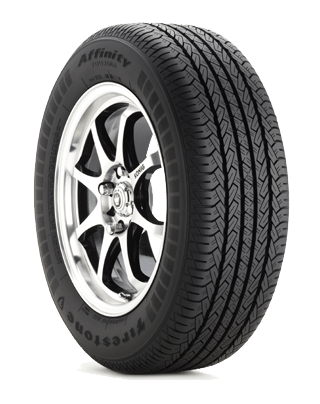
- Gold Pledge Limited Warranty
- All-Season
- Passenger Tires
 ALL SEASON
ALL SEASON

- No warranty
- All-Season
- Passenger Tires
 FT140
FT140
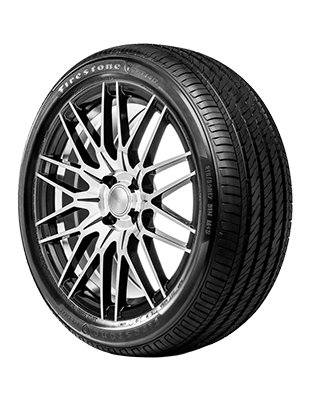
- No warranty
- All-Season
- Passenger Tires
 WEATHERGRIP
WEATHERGRIP
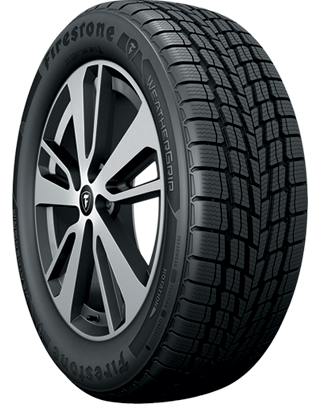
- No warranty
- All-Season
- Passenger Tires
 Firehawk AS V2
Firehawk AS V2
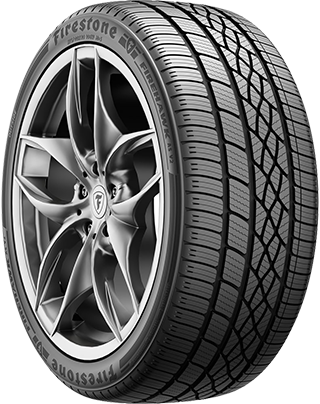
- No warranty
- All-Season
- Performance
 Firehawk Indy 500
Firehawk Indy 500
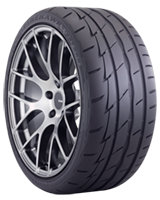
- Gold Pledge Limited Warranty
- Summer
- Performance
 Winterforce 2
Winterforce 2
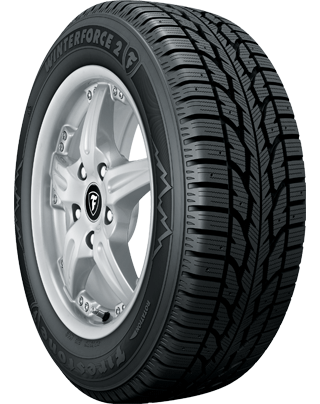
- No warranty
- Winter
- Winter

- No warranty
- All-Season
- Passenger Tires

- No warranty
- All-Season
- Passenger Tires

- No warranty
- All-Season
- Performance
 Extensa A/S II
Extensa A/S II

- No warranty
- All-Season
- Passenger Tires
 PROXES Sport
PROXES Sport
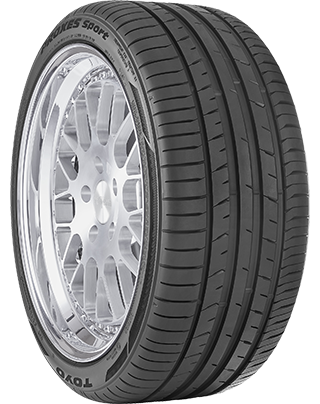
- No warranty
- Summer
- Performance
 PROXES Sport A/S
PROXES Sport A/S
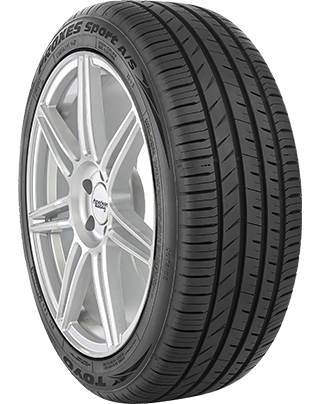
- No warranty
- All-Season
- Performance
2013 Toyota Camry Tire Information
Apart from finding the right tire size, you also want to consider a handful of other factors when buying new Toyota Camry tires like where and how you drive, and what tire brand you trust most. When evaluating your driving conditions, think about where you live (countryside vs. city vs. mountains) and the kind of unexpected weather you're likely to experience. It's not uncommon for drivers in states that experience all four seasons to buy more than one set of tires. one for winter and one for summer. Other drivers prefer the convenience of all-season tires. They make one trip to the tire shop and they're pretty much ready for rain, light snow, or sun!
Next, consider your driving style. If you're an avid off-roader who yearns to pioneer new paths, you have very different tire needs than a highway commuter who doesn't hit the hills very often. Browse Toyota Camry tires online or come to your nearby Firestone Complete Auto Care for help selecting the tire that's right for you.
Installing Toyota Camry Tires
Firestone Complete Auto Care installs more tires on more cars than most other companies. We're your tire shop and a complete service center for tire installation, maintenance, repair, rotation, and alignment! Buy 2013 Toyota Camry tires online and schedule your installation when it's convenient for you.
2013 Toyota Camry Tire Questions
-
Why check Toyota tire inflation? Even a tiny decrease in tire pressure could impact your safety and fuel economy. Maintaining proper tire pressure can help increase fuel economy, improve braking time, and boost tire lifespan.
-
What do the numbers on my Toyota Camry tires mean? The numbers on your tire sidewall give you information about tire speed rating, traction, treadwear, tire size, and load carrying capacity. Chat with a tire technician to learn how to read the numbers on your Toyota tires!
-
How do I check the tread depth on my Toyota tires? Stay on top of your tire tread depth to help avoid a dangerous drive. You can check tread depth with a penny. Hold the penny so that Abraham Lincoln is facing you, then place your penny into a tread groove upside down. If you can see the top of Abe’s head, your tread is shallow and it might be time for new Toyota Camry tires. Grab a penny. Hold the so that Abe Lincon's head is facing you and his hair is pointing toward the ground. Then, place the penny into a tread groove. If you can see the top of Abe’s head, your tread is shallow and it might be time for new Toyota Camry tires.
Types of 2013 Toyota Camry Repairs
Want more details? Choose a service below to read more about Toyota Camry repairs at Firestone Complete Auto Care.
2013 Toyota Camry Repair Information
No driver looks forward to car repairs. But at Firestone Complete Auto Care, we strive to give you the excellent repair experience you deserve. When it’s time for 2013 Toyota Camry repair services, head to your nearest Firestone location and rest easy knowing that your Camry is in capable hands. Before we begin any repair work, we’ll diagnose any issues and answer your questions about potential repair options. We value your trust, so we recommend only the repairs we think are necessary for your safety on the road.
What Will Toyota Camry Repairs Cost?
The cost to repair your 2013 Toyota Camry depends on what kind of repair you need, the cost of any replacement parts, the labor involved, and your locale. They're updated regularly!
A few different aspects can influence repair costs for your 2013 Toyota Camry, like
Questions About 2013 Toyota Camry Auto Repairs
-
Do I still need scheduled maintenance even when nothing is wrong with my Toyota? The cheapest 2013 Toyota Camry repair is the one that isn’t necessary in the first place! Staying up-to-date with your car’s scheduled maintenance services is a great way to keep future repair costs low.
-
What does it mean to be 'in tune' with your car? No, we’re not talking about finding the best jams on the radio! You know your car best, and you’re the first person who will notice if something doesn’t feel right (like new smells, sights, or sounds coming from your car). If you sense that something is 'off,' stop in for a Courtesy Check to have these symptoms checked out ASAP. Early action could help you prevent Toyota Camry repairs.
-
Do I have to get the repairs you recommend for my Toyota? Talk to your technician. We'll never recommend a service or repair for your 2013 Toyota Camry that we don't think is necessary for your safety.
Get Your 2013 Toyota Camry Brakes Fixed
Your Toyota Camry may be powered by a strong engine. But if you can’t brake, it might as well be scrap metal. If you’re experiencing squeaky brakes or a loss of braking power, don’t wait! Safe driving is difficult when your brakes are anything but their best. Plus, ignoring your brake problems can result in more damage and higher brake repair bills. Visit Firestone Complete Auto Care for the right brake repair for your 2013 Toyota Camry. We offer many affordable brake repairs like pad/shoe replacement, brake rotor/drum machining, brake fluid exchange/bleeding, and brake caliper and wheel cylinder installation.
Toyota Camry Brakes Questions
-
Why is my Camry shaking as I brake? Your Camry could shake when you brake due to worn brake pads or rotors, warped rotors, loose or worn suspension components, or faulty brake calipers. You can always schedule a free brake inspection at the first sign of strange brake behavior.
-
How long should my Camry brake pads last? You can usually get around 30,000 to 40,000 miles out of your brake pads, but how and where you drive your Camry can affect this. Hauling large loads or riding your brakes can shorten their lifespan, while smoothly braking and mostly sticking to highways can help your brake pads last longer.
-
Should my Camry be leaking brake fluid when the car is off? Your Camry has a closed hydraulic brake system, meaning you should not have a brake fluid leak under normal conditions. However, parts of your brake system can wear out over time or become damaged, which can lead to a brake fluid leak.
When to Get Toyota Camry Drivetrain Repairs
You don't want to go to just anyone for drivetrain repair. Drivetrains for front, rear, and all-wheel-drive and 4WD vehicles are all different. You want to visit Firestone Complete Auto Care. We can fix many 2013 Toyota Camry drivetrain components Your Camry might need driveshaft repair if you notice resistance when turning, heavy vibrations in your floorboards, clunks when shifting, or vibration as your vehicle accelerates.
2013 Toyota Camry Drivetrain Questions
-
How do I know if my Toyota drivetrain is damaged? Your Toyota Camry drivetrain might be damaged if you notice strange noises from the rear of your vehicle, see fluid leaking, or have issues turning.
-
What triggers the malfunction indicator light (MIL) in a Camry? The malfunction indicator light — also known as the check engine light — on your Camry can illuminate for a variety of reasons, including engine issues, electrical problems, damaged sensors, transmission problems, misfires, and faulty connections.
-
Is a drivetrain malfunction in my Camry serious? If you experience a drivetrain malfunction in your Camry, it is important to have it inspected by a professional mechanic as soon as possible to identify the underlying cause and perform the necessary repairs. Driving with a malfunctioning drivetrain can be dangerous and cause further damage to your car.
2013 Toyota Camry Wheel Alignment
An alignment involves making adjustments to your Toyota Camry's suspension system, the connection between the vehicle and the wheels. When your car has an alignment service, calculated changes are made to the angles of your tires. This is so that your tires hit the road at an optimal angle for your vehicle’s performance — just as Toyota intended. Bring your 2013 Toyota Camry in for a wheel alignment and we'll start with an alignment check. After that, we can adjust your wheel alignment angles until they match Toyota’s recommended measurements.
Questions About Toyota Camry Alignment
-
What can knock my Toyota Camry out of alignment? Hitting a pothole or curb can alter your wheel alignment. So can general wear and tear over time.
-
When should you get a wheel alignment for your Camry? Generally, it’s wise to have your alignment looked at around every 6,000 miles or 6 months, whichever happens first. You should check your Camry owner’s manual to verify Toyota’s suggested interval.
-
Do you need an alignment with new Camry tires? It’s likely not a requirement to get an alignment when you install new tires on your Camry, but it's a smart idea to do so anyway. An alignment can help ensure even tire wear, smooth handling, and better fuel efficiency.
Engine Repairs for Your 2013 Toyota Camry
If your 2013 Toyota Camry needs engine repair, our technicians will make sure you understand what’s going on before they start working on your engine. We don't start working until we have your approval. If a repair isn’t urgent right now, we’ll let you know. We'll also tell you if it's necessary for your safety. We want to give you all the details you need to make an informed decision about your engine repairs. By choosing Firestone Complete Auto Care for Camry engine repairs and you can feel confident knowing that we use Toyota-approved parts and components like the cambelt, engine oil seal, ignition coil, or other parts.
Engine Q&A 2013 Toyota Camry
-
Why does the check engine light come on when I start my Camry? It’s usually normal for your check engine light to turn on upon ignition. This is just your Camry testing its circuits. The dash light shouldn't stay on. If it does, you might want to bring your vehicle in for service.
-
Why does my Toyota engine sound different? Strange under-the-hood noises can point to problems within your Toyota Camry engine. Tapping or knocking could mean you need an oil change. Whistling sounds could mean you have an intake leak or misaligned belt. Squealing may be caused by a loose fan belt, and grinding could be a sign that something is wrong with your brakes — not the engine.
-
What could damage my Toyota Camry engine? Some driving habits are not so great for your engine. These include driving on a near-empty gas tank, flooring the gas pedal while the car is in Park, or accelerating too quickly, too soon. Protect your engine’s performance and efficiency by distancing yourself from these habits.
Tire Repair for Your 2013 Toyota Camry
If your 2013 Toyota Camry is in need of a tire inspection or possible flat tire repair, Firestone Complete Auto Care has your back. In some cases, a tire doesn’t have to be replaced – it can be plugged and patched with a simple repair. Depending on the damage, though, a repair might not be the right move. Our technicians can determine which option is best for your situation. We’ll begin by taking a look at where the damage is, the type and extent of the tire damage, and how all of your tires are wearing.
If we determine that your 2013 Toyota Camry tire can be safely repaired, we’ll get to work on the steps to fix it: (1) Separate the tire from the vehicle wheel, (2) fill in the area that’s been punctured to prevent damage from moisture, and (3) secure and seal the inner tire liner to ensure the tire is airtight.
Toyota Camry Tire Repair Questions
-
How soon should I have my flat tire repaired? Driving on a flat or underinflated tire can put extra stress on your wheels and alignment. While it’s sometimes necessary to drive a short distance on a flat tire to get to a safe place, don’t take any other trips in your Camry until you can have the flat tire repaired or replaced.
-
Is temporary sealant bad for my Toyota's tires? Temporary sealants will solve your problem… for a little bit. If you’ve seen temporary or emergency tire sealant before (it usually comes in a can), it can be tempting to turn to this as a solution for your flat tire. Keep in mind that these fixes could buy you some time to get to Firestone Complete Auto Care for a proper repair, but they could also cause some harm in the process (for example, damage to your TPMS). Plus, using a product like this could void your tire warranty.
-
Why do my Camry tires keep losing air? Tire punctures, damaged wheels, and leaking valve stems are possible reasons for your Camry tires continuously losing air.
2013 Toyota Camry Maintenance
When it comes to your Toyota Camry, how you treat your car makes all the difference in its performance. With proactive maintenance, your Camry could be on the road well past the 200,000 mile mark.
2013 Toyota Camry Maintenance Schedule
What is the manufacturer recommended maintenance schedule for a 2013 Toyota Camry? Find maintenance info for your vehicle.
2013 Toyota Camry Maintenance Information
There's no need to guess when it's time to get Camry maintenance, and no need to wait until something goes wrong. It’s as easy as following the recommended maintenance schedule that’s been written specifically for your 2013 Toyota Camry! This recommended maintenance schedule is written by the auto manufacturer, Toyota themselves. Driving conditions, climate variations, and other variables can affect which scheduled maintenance services you’ll need; in most cases, though, recommended maintenance will consist of services like tire rotations, vital fluid checks/exchanges, filter changes, brake pad replacement, and oil changes. Keeping up with routine service appointments is a great way to keep your Camry running for longer, increase your vehicle safety, and maybe even save you the headache of dealing with common 2013 Toyota Camry problems in the future.
Learn About Vital Maintenance Needs for Your Toyota Camry
Bring your 2013 Toyota Camry to Firestone Complete Auto Care for factory-recommended maintenance services and an expert technician will begin by performing a Courtesy Check. This Courtesy Check can establish a baseline of what may need to be addressed during your service appointment. Each Courtesy Check includes a free battery test and an inspection of your Camry's windshield wiper blades, head and tail lights, filters, fluid levels, tires, and alignment.
Firestone Complete Auto Care is your spot for 2013 Toyota Camry maintenance. We can help you keep your vehicle (and your life!) running smoothly. Many of our locations have weekend and evening hours for your convenience.
2013 Toyota Camry Maintenance Q&A
-
What do I do if I hit a pothole in my Toyota Camry? Watch out for pothole damage. If your 2013 Camry is pulling to one side or the other, your tires or suspension system could be calling out for help.
-
When should I switch my Toyota Camry to high mileage oil? If your Toyota Camry has ticked past 75,000 miles, consider switching to high mileage oil at your next oil change to give your engine what it needs to go another 75,000 (or more!). High mileage oil: make it a high priority!
-
Why are my Toyota dashboard lights on? It's better to get them addressed as soon as possible. An illuminated dashboard light means something in your vehicle isn't functioning like it should. Letting problems linger can mean bad news for your Toyota Camry, so be sure to take your car in for service as soon as you notice an illuminated dashboard light.
Battery Size & Replacement for 2013 Toyota Camry
Not sure what battery to get for your Toyota Camry?
| Battery | Engine | Warranty | Cold Cranking Amps | |
|---|---|---|---|---|
| 24F-3 | L4/2.5L | Replacement 24 months | Performance months | 650 |
| 24F-3 | L4/2.5L | Replacement 24 months | Performance months | 650 |
| 24F-6 | L4/2.5L | Replacement 36 months | Performance months | 750 |
| 24F-6 | L4/2.5L | Replacement 36 months | Performance months | 750 |
| 24F-RP | L4/2.5L | Replacement 48 months | Performance months | 750 |
| 24F-RP | L4/2.5L | Replacement 48 months | Performance months | 750 |
| 24F-3 | V6/3.5L | Replacement 24 months | Performance months | 650 |
| 24F-3 | V6/3.5L | Replacement 24 months | Performance months | 650 |
| 24F-6 | V6/3.5L | Replacement 36 months | Performance months | 750 |
| 24F-6 | V6/3.5L | Replacement 36 months | Performance months | 750 |
| 24F-RP | V6/3.5L | Replacement 48 months | Performance months | 750 |
| 24F-RP | V6/3.5L | Replacement 48 months | Performance months | 750 |
| 24F-3 | L4/2.5L | Replacement 24 months | Performance months | 650 |
| 24F-3 | L4/2.5L | Replacement 24 months | Performance months | 650 |
| 24F-6 | L4/2.5L | Replacement 36 months | Performance months | 750 |
| 24F-6 | L4/2.5L | Replacement 36 months | Performance months | 750 |
| 24F-RP | L4/2.5L | Replacement 48 months | Performance months | 750 |
| 24F-RP | L4/2.5L | Replacement 48 months | Performance months | 750 |
| 24F-3 | V6/3.5L | Replacement 24 months | Performance months | 650 |
| 24F-3 | V6/3.5L | Replacement 24 months | Performance months | 650 |
| 24F-6 | V6/3.5L | Replacement 36 months | Performance months | 750 |
| 24F-6 | V6/3.5L | Replacement 36 months | Performance months | 750 |
| 24F-RP | V6/3.5L | Replacement 48 months | Performance months | 750 |
| 24F-RP | V6/3.5L | Replacement 48 months | Performance months | 750 |
Car Batteries for 2013 Toyota Camry
The average car battery lasts three to five years. Check your battery regularly and replace it as needed so it doesn’t leave you and your Toyota Camry stranded. Look out for symptoms of a faulty car battery. A sluggish engine start, an illuminated check engine light or battery signal, swollen battery case, corrosion-covered posts, or faded headlights can all be signs that your battery is on its last leg.
You can also get a Free Battery Test at your local Firestone Complete Auto Care. Visit us for a complimentary battery check and, if needed, a replacement battery for your 2013 Toyota Camry. Automotive batteries are just one of our many areas of expertise. Our expert technicians understand Toyota service recommendations for Camry battery cold cranking amps and reserve capacity. Get help identifying the type and size of battery that matches your vehicle, and schedule an appointment today for a quick car battery replacement.
Answers to Your Toyota Camry Car Battery Questions
-
Why won’t my Toyota Camry battery hold a charge? A car battery that needs to be jump-started every time is as good as dead. It may be getting old. Or, you’ve been leaving the doors slightly open and the dome lights on during the night. Stop in for a free battery check at your nearest Firestone Complete Auto Care and learn more about your battery's charge.
-
What is the average lifespan of a car battery? The typical 12-volt car battery may last three to five years, depending on the type of battery, the driving conditions, and how well the battery is maintained.
-
What is the white, crusty substance accumulating on my Camry’s battery post? The white, crusty stuff that can accumulate around Camry car battery terminals is called corrosion. It is caused by a chemical reaction between the battery acid and the air, which creates a white, powdery substance that can build up on the terminals over time. Corrosion can interfere with the flow of electricity between the battery post and the car's electrical system, sometimes leading to poor electrical performance, difficulty starting, and even premature battery failure.
2013 Toyota Camry Oil Changes
Toyota recommends having your 2013 Toyota Camry’s motor oil changed at regular intervals. Outside of Toyota-recommended oil change intervals, your Camry may need an oil change if your check engine light is on, you hear engine knocking, sense an oil smell in the cabin, or notice an unusual amount of exhaust. You may also need an oil change more frequently than Toyota recommends if you haul heavy loads, drive in dusty terrain, enjoy off-roading, or go at low speeds on long distance trips.
Whether it’s synthetic, conventional, or a blend of both — your local Firestone Complete Auto Care has the right oil for your Toyota Camry. Consult Toyota's recommendations to select the right 2013 Camry oil and talk with a teammate to learn more about our oil options: Quaker State® Advanced Durability™ conventional oil, Pennzoil® High Mileage Vehicle® motor oil, Pennzoil Platinum® Full Synthetic motor oil with PurePlus™ Technology, and Shell Rotella® heavy-duty engine oil. During an oil change, one of our techs will change your Camry’s oil, replace and recycle your used oil and filter, inspect the rest of your car’s filters, top-off essential fluids, and perform a courtesy inspection on your entire vehicle. Make an appointment for an oil change service today and let the oil experts take care of your Camry's engine.
Oil Change Q&A for Your 2013 Toyota Camry
-
What can cause the oil light on my Toyota Camry to illuminate? The oil change light in your Toyota Camry could be triggered by an overdue oil change. However, if the oil pressure light is on, you may be dealing with low engine oil, a failing oil pump, a clogged oil filter, or a malfunctioning oil pressure sensor.
-
How hard is it to change Toyota Camry oil at home? First off, changing your own oil isn’t as easy as you’d think. You’ll have to buy special tools and figure out a way to recycle the old oil properly. Getting a professional oil change reduces the risk of something going wrong during the service, but also helps your car perform down the road.
-
Why is my Toyota Camry exhaust smoke grayish or blue? There could be an oil leak and your engine is burning oil. Time to have a qualified technician check things out. The leak could be caused by several issues like leaking valve seals, damaged piston rings, or worn cylinder walls.
2013 Toyota Camry Engine Tune-Ups & Maintenance
Routine engine tune-ups can bring power back to your Camry. Your nearest Firestone Complete Auto Care location has several options to choose from when it comes to Toyota Camry engine tune-up services. The standard Firestone Tune-Up is one service option. This includes the installation of new spark plugs and a visual inspection of your engine’s components, plus a lifetime warranty on parts*. Another service option pays special attention to the filters in your Camry. Specifically, we replace the fuel filter and air filter. Yet another service is a fuel system cleaning process, which involves removing varnish, dirt, and carbon deposits that have built up inside the fuel injectors, throttle body, and throttle plate in your Camry. This can improve your fuel system’s performance (and therefore, your engine’s performance). Keep in mind that your Camry's mileage and maintenance history can uniquely impact its tune-up needs. Chat with a Firestone technician before you jump into a specific service to ensure your engine tune-up money is well-spent.
*Check with a teammate at Firestone Complete Auto Care for complete terms and conditions regarding warranties.
Common Engine Tune-Up Q&A for 2013 Toyota Camry
-
When should Toyota Camry spark plugs be replaced? Replace spark plugs on time or about every 30,000 miles or so. Spark plugs are small but mighty. The spark of electricity that the plug emits across a small gap creates the ignition for the combustion needed to start your car. Without that spark, your car won't start.
-
What does a puddle underneath my Toyota Camry mean? Puddles could indicate that your vehicle is leaking coolant, oil, or brake fluid. Ignoring these leaks can lead to permanent engine damage, so address these symptoms ASAP with a tune-up service.
-
How often should I clean my Toyota Camry fuel injectors? Factors like fuel type and driving conditions can affect how frequently you need to clean your Camry fuel injectors. Some manufacturers recommend a fuel system cleaning as part of routine maintenance, or as needed if your vehicle is showing signs of poor fuel system performance.
2013 Toyota Camry Suspension Service & Repair
During the first few years you had your 2013 Toyota Camry, you probably enjoyed a smooth and steady ride. Now, however, things are starting to feel a little rough. Maybe your Camry jolts, sways to one side, or makes noise whenever you turn or drive over a speed bump. The first sign of trouble is the best time to bring your 2013 Toyota Camry in for steering and suspension repairs. We’ll get to the root of the issue and, if your car needs steering and suspension repairs, we'll explain all of your options and the potential cost.
Questions About 2013 Toyota Camry Steering & Suspension
-
Why does my Toyota Camry bounce so much? Damaged struts or shocks can't dampen road bumps properly, causing your vehicle to feel like a trampoline after each dip or bump.
-
Why does my Camry front end dip forward when I brake? The forward dip in the front end of your Camry when you brake is caused by the weight and momentum transferring to the front wheels. If your suspension system is in bad shape, it can fail to distribute this force, leading your front end to dip further downward.
-
Does treadwear and tire pressure impact my Camry's steering and suspension? Keeping your tires properly inflated can help reduce strain on the suspension, and also help you notice when you need new tires. A tire that doesn't have an adequate amount of tread can't grip the road or function as well as the manufacturer intended.
Convenient & Local 2013 Toyota Camry A/C Service
Our trained technicians will do what they can to solve your 2013 Toyota Camry A/C problems. During this initial A/C performance check, we’ll look at the state of your 2013 Toyota Camry’s A/C system to see if repair work is required. This check includes a visual inspection, performance test, and pressure and leak test.
Let's say we repair your 2013 Toyota Camry A/C system. We will also perform an A/C evacuation and recharge. To do this, one of our technicians will remove the refrigerant in your A/C system (if there is even any left to remove). Then, they’ll use Toyota’s specifications to evacuate the system. Finally, we’ll recharge the A/C system with new refrigerant.
2013 Toyota Camry A/C System FAQs
-
What’s making my Camry A/C put out warm air? Maybe your A/C starts cool but then gets warm. Or maybe it never gets cold in the first place. Either way, your A/C troubles could be traced back to a clogged expansion valve, faulty compressor clutch, blown fuse, or leak.
-
How does my A/C system get a leak? A/C system leaks are often due to a combination of age and moisture. Rubber seals and gaskets naturally degrade over time, allowing refrigerant to exit and moisture to enter your Camry's A/C system.
-
Why does my Camry’s A/C only work when the car is moving? There could be issues with one or more components in the air conditioning or electrical system. Your Camry may have a faulty cooling fan or low refrigerant.
Transmission Services for 2013 Toyota Camry
The transmission delivers power from the engine to the wheels so that you can drive on your terms. Because your transmission is responsible for converting the right amount of power into the right amount of speed, even the smallest transmission problems should be addressed right away. 2013 Toyota Camry transmission problems can show up as shifting delays, grinding when accelerating, a feeling of shakiness, or whistling noises or a burning smell coming from beneath the hood. If you don’t pay attention to Toyota Camry transmission trouble you might notice your fuel economy decrease or find that your Camry isn’t working at all. Our technicians are trained to service 2013 Toyota Camry transmission systems according to vehicle manufacturer recommendations. Schedule an appointment at your local Firestone Complete Auto Care at the first sign of transmission problems to help diagnose, treat, and prevent major transmission issues.
2013 Toyota Camry Transmission Q&A
-
How often does my Camry transmission fluid need to be checked? Caring for your Toyota Camry’s transmission fluid is a great way to help it perform. About every 30,000 to 60,000 miles is a good timeframe for having your transmission fluid inspected and perhaps changed. Service intervals can vary depending on how you use your Toyota, so check with your technician first. Luckily, leaks and low fluid levels are easy to spot and inexpensive to fix.
-
Can Toyota Camry transmission fluid leak? Yes. Toyota Camry transmission fluid can leak as time passes, which may lead to transmission problems. Transmission fluid leaks are often caused by worn or damaged transmission components, such as the transmission pan, cooler lines, seals, or housing. An overfilled transmission may also be behind your transmission fluid leak.
-
Can I still drive my Toyota Camry if it has a transmission fluid leak? It’s not advisable to drive your Camry if it’s leaking transmission fluid. Your transmission system needs transmission fluid to function properly, and a leak can lead to significant problems, such as overheating or reduced performance. You might even experience transmission failure.
Get a 2013 Toyota Camry Vehicle Inspection
Every service performed at Firestone Complete Auto Care includes a multi-point Courtesy Check. To start, one of our technicians will check the battery in your Toyota Camry to determine how much charge remains. The check will continue with a visual inspection of your Toyota Camry's filters, lights, wiper blades, hoses, alignment, tires, fluid levels, and belts.
We perform a Courtesy Check any time you bring your car to a local Firestone Complete Auto Care for service, but we can also dig deeper and perform a Complete Vehicle Inspection on your 2013 Toyota Camry if you prefer. During a Complete Vehicle Inspection, we’ll visually check everything that’s on the list for a Courtesy Check. Additionally, we’ll perform an examination (by hand!) of your exhaust system, steering and suspension, and brakes. The goal of this type of inspection is to unearth significant issues that might require preventative maintenance.
Depending on where you live, you may be able to take care of your state inspection or safety test at your local Firestone Complete Auto Care. Specific requirements for these types of inspections vary by state.
Common 2013 Toyota Camry Vehicle Inspection Questions
-
When does my Toyota Camry need an inspection? You drive your car, day in and day out, so you know it best. If you notice unusual engine noises or you can’t shake the feeling that something is 'off,' start with a Courtesy Check to stay ahead of potential issues.
-
Help! My 2013 Toyota Camry failed the state inspection test. Can you get it to pass? There's a good chance we can. Stop by for a full system inspection and we'll get to the root of the issue.
-
When’s the best time to have a complete vehicle inspection performed on my Toyota Camry? The best time to have a complete vehicle inspection done on your Toyota Camry is when you notice something is off but you can’t locate the issue yourself. Schedule an inspection if you experience any unusual symptoms, such as unfamiliar dashboard indicators, strange engine noises, or steering changes. An inspection can be especially beneficial before a road trip for the simple peace of mind. You can feel confident in your adventure!
Radiator Service & Repair for 2013 Toyota Camry
Keeping up with regular radiator maintenance in your 2013 Toyota Camry is crucial to keep your engine in the best possible shape for years to come. In fact, Toyota recommends replacing coolant/antifreeze at specific intervals, but you can also take note of any signs your radiator is going bad. You could be on the verge of a radiator-induced engine breakdown if you notice leaking coolant, overheating, or an illuminated low coolant dashboard light.
When you come to Firestone Complete Auto Care, we’ll begin your radiator repair with an in-depth inspection of the cooling system in your Toyota Camry. Then, we’ll move on to a machine-powered coolant exchange. Finally, we’ll refill the flushed sealants, lubricants and chemicals, then do a pressure check to catch any possible leaks. From the heater core to the radiator cap, we’ll take excellent care of your 2013 Toyota Camry at Firestone Complete Auto Care.
Common Toyota Camry Radiator Questions
-
What does the coolant light on my Toyota dashboard mean? Your engine might be about to overheat. If your low coolant light is on, pull over in a safe area and wait for your engine temperature to go down. Once it’s safe to do so, bring your car to your nearest Firestone Complete Auto Care to have the coolant system inspected.
-
What can cause my Camry to overheat? Your Toyota Camry engine could overheat due to low coolant, a clogged radiator, a damaged water pump, a malfunctioning cooling fan, or a faulty thermostat.
-
Why does the radiator in my Camry sound like it’s rumbling or boiling? There could be air pockets in your Camry’s cooling system. You might also have a clogged radiator or faulty radiator cap (this last one is an easy fix!).